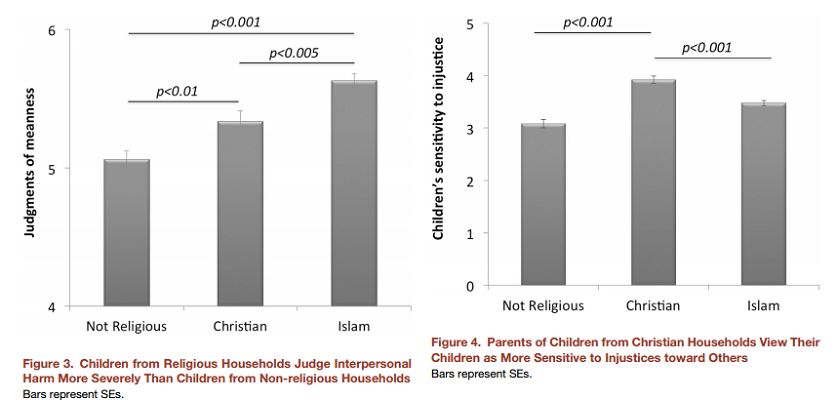Policy: Save the Poet Sentenced to Death in Saudi Arabia
The weekly report on worldwide public policy and secularism
by Edwina Rogers
Climate Summit
Climate Change information and briefings are the top request from Congressional offices received by the Secular Policy Institute. ┬áAnd no wonder since the UN Climate Change Conference in Paris is featuring the largest gathering ever of world leaders for talks aimed at producing the most far-reaching pact yet to reduce greenhouse-gas emissions. And, as the┬áWashington PostÔÇÖs Steve Mufson┬áreports, President Obama delivered an ominous warning that ÔÇ£no nation large or small, wealthy or poor, is immuneÔÇØ to ravages of global warming.
And, as the AP reports, Majority Leader Kevin McCarthy says the House of Representatives will not go along if President Obama tries to commit taxpayer money to support a climate accord reached in Paris.  The House has already voted to halt reductions in emissions for power plants as sought by the EPA.
Plus, NPR today published an article:┬áÔÇ£10 Things To Know About The U.N. Climate Talks In Paris.ÔÇØ
Join SPI’s Coalition Letter To Save Poet Sentenced To Beheading In Saudi Arabia
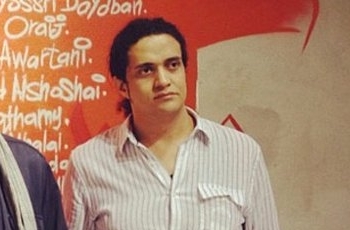 The Secular Policy Institute has a letter out for groups to sign on.  It calls on President Obama and Secretary Kerry to demand clemency for artist Ashraf Fayadh. Through a hearsay allegation and a crooked interpretation of one of his poems, Fayadh faces beheading come mid-December. After initially determining capital punishment unwarranted, upon prosecutorial appeal Saudi Arabia condemned Fayadh to death for the crime of blasphemy.
The Secular Policy Institute has a letter out for groups to sign on.  It calls on President Obama and Secretary Kerry to demand clemency for artist Ashraf Fayadh. Through a hearsay allegation and a crooked interpretation of one of his poems, Fayadh faces beheading come mid-December. After initially determining capital punishment unwarranted, upon prosecutorial appeal Saudi Arabia condemned Fayadh to death for the crime of blasphemy.
There is a one month window to save his life. According to sources close to him, Fayadh lacks legal council and visitation rights. As global human rights conventions were established to protect people like Ashraf and as the USCIRF mandates action to protect ÔÇ£prisoners of belief,ÔÇØ we call upon the Offices of the President of the United States and the U.S. Department of State to intervene on behalf of Ashraf Fayadh. ┬áThe deadline for your group to be listed is December 14, 2015. ┬áJust email edwina@secularpolicyinstitute.net to get included. ┬áThe full announcement and text of the letter can be found here.
Rest of the Best
This week hosted the 27th annual World AIDS Day, but how have attitudes on the disease changed over the last two decades? In a new analysis, we find that the belief that AIDS might be a punishment from God for immoral sexual behavior dropped more than 20 percentage points in 20 years, from 36 percent to 14 percent.
Many religious organizations advocate the importance of family,┬ábut very few provide paid family leave, reports the Washington Post’s Sarah Pulliam Bailey. More than eight in ten (82 percent) Americans support requiring companies to provide all full-time employees with paid leave for the birth or adoption of a child, including majorities of Catholics (86 percent), black Protestants (85 percent), while mainline Protestants (78 percent), and white evangelical Protestants (73 percent).
In that Number
More than 900 women are running for office in the┬áDecember 12┬ámunicipal election in Saudi Arabia, a first in the kingdomÔÇÖs history.
Source: CNN.
Planned Parenthood Attacks
The Secular Policy Institute and several dozen other organizations has signed an open letter to the US Department of Justice asking them to take the big picture when investigating violence against abortion clinics, using all appropriate federal statues, including those against domestic terrorism. The attack on Planned Parenthood last month and all such attacks are ideologically driven, meaning that groups like the Center for Medical Progress, which released a video falsely representing Planned Parenthood, play a role in triggering fanaticism and violence.

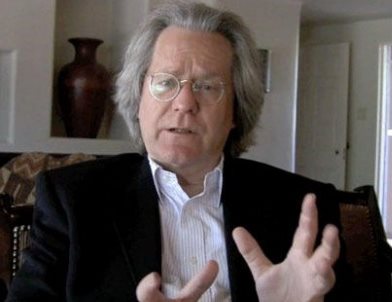 For example, SPI Fellow
For example, SPI Fellow 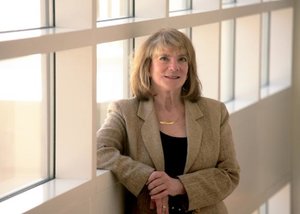 SPI Fellow
SPI Fellow  As the world’s largest and most prestigious secular think tank, the Secular Policy Institute produces reports several times a year, bringing you top academic thought, scientific evidence, and public policy analysis.
As the world’s largest and most prestigious secular think tank, the Secular Policy Institute produces reports several times a year, bringing you top academic thought, scientific evidence, and public policy analysis.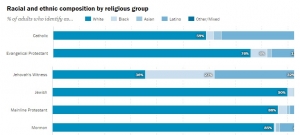 The weekly report on secular research and demographics
The weekly report on secular research and demographics SPI Fellow Thure Cerling, a professor at geology, geophysics, and biology at the University of Utah, has found that African mammals diets have switched over time. Some mammals switched between grazing on grass to grazing on trees and shrubs, or went extinct in the attempt to switch diets. Learn more at 
SPI Fellow Thure Cerling, a professor at geology, geophysics, and biology at the University of Utah, has found that African mammals diets have switched over time. Some mammals switched between grazing on grass to grazing on trees and shrubs, or went extinct in the attempt to switch diets. Learn more at 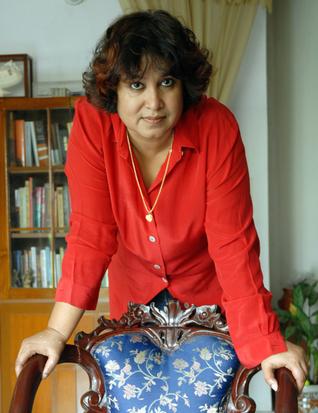
 Religious leaders and believers are debating whether or not the United States should welcome Syrian refugees. It is not surprising that the Muslim community in this country would be supportive of the influx of new Muslim refugees, but the two other Abrahamic faith traditions seem to be beside themselves on this issue. There are Christian leaders and believers who quote the Bible both for and against allowing Muslim refugees into America. Jewish leaders are similarly conflicted especially because Jews and Muslims have a pretty violent conflict going on in the Middle East, and yet American Jews are also sympathetic because of their history from the last century of being the refugees after the Second World War.
Religious leaders and believers are debating whether or not the United States should welcome Syrian refugees. It is not surprising that the Muslim community in this country would be supportive of the influx of new Muslim refugees, but the two other Abrahamic faith traditions seem to be beside themselves on this issue. There are Christian leaders and believers who quote the Bible both for and against allowing Muslim refugees into America. Jewish leaders are similarly conflicted especially because Jews and Muslims have a pretty violent conflict going on in the Middle East, and yet American Jews are also sympathetic because of their history from the last century of being the refugees after the Second World War.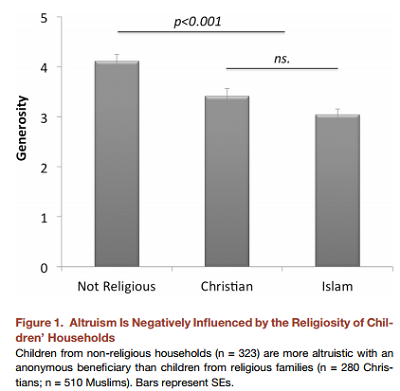 In the sample, 23.9% of households identified as Christian, 43% as Muslim, 27.6% as not religious, 2.5% as Jewish, 1.6% as Buddhist, 0.4% as Hindu, 0.2% as agnostic, and 0.5% as other. Results from an independent samples t test, comparing altruism in children from religiously identifying (Msharing = 3.25, SD = 2.46) and non-religiously identifying (Msharing = 4.11, SD = 2.48) households indicated significantly less sharing in the former than the latter (p < 0.001). To further investigate these effects within specific religions, three large groupings were religious identification on meanness rating (F(2, 767) = 6.521, p = 0.002, h2 = 0.017; Figure 3). Post hoc Bonferroni-corrected paired comparisons showed that children in Muslim households judged interpersonal harm as more mean than children from Christian (p < 0.005) and non-religious (p < 0.001) households, and children from Christian households judged interpersonal harm as more mean than children from non-religious households (p < 0.01).
In the sample, 23.9% of households identified as Christian, 43% as Muslim, 27.6% as not religious, 2.5% as Jewish, 1.6% as Buddhist, 0.4% as Hindu, 0.2% as agnostic, and 0.5% as other. Results from an independent samples t test, comparing altruism in children from religiously identifying (Msharing = 3.25, SD = 2.46) and non-religiously identifying (Msharing = 4.11, SD = 2.48) households indicated significantly less sharing in the former than the latter (p < 0.001). To further investigate these effects within specific religions, three large groupings were religious identification on meanness rating (F(2, 767) = 6.521, p = 0.002, h2 = 0.017; Figure 3). Post hoc Bonferroni-corrected paired comparisons showed that children in Muslim households judged interpersonal harm as more mean than children from Christian (p < 0.005) and non-religious (p < 0.001) households, and children from Christian households judged interpersonal harm as more mean than children from non-religious households (p < 0.01).